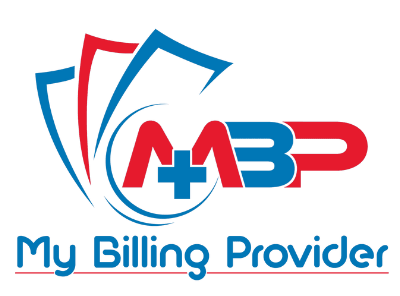Common Medical Billing Denials and How to Prevent Them
Claim denials in healthcare are a major drain on clinic and hospital revenue; they slow cash flow, add administrative cost, and distract staff from patient care. Common Medical Billing Denials and How to Prevent Them explains the most frequent denial reasons, practical prevention steps, and how AI-driven RCM solutions reduce errors and speed reimbursements. Tackling denials proactively can cut workload and protect margins for practices across the USA, UK, and UAE.
Understanding Medical Billing Denials
What are claim denials?
A denial happens when a payer refuses to pay a submitted claim (fully or partially). Denials can be administrative (eligibility, missing info), coding-related, or clinical (medical necessity). Even small denial rates compound: industry analyses show initial denials and appeals consume billions and are trending up, hurting cash flow and staff productivity.
Why they matter
- Denials slow reimbursements and increase days in A/R.
- Administrative cost per denied claim has risen significantly, adding labor expense.
- Many denials are preventable — addressing root causes returns revenue faster and costs less than appeals.
Top 5 Most Common Medical Billing Denials
Below are the denial categories billing teams see most often, with quick notes on prevention.
- Coding Errors – Incorrect ICD/CPT codes
- Cause: Wrong or outdated codes, unbundling, or mismatched CPT/ICD pairing.
- Prevention: Regular coder training, dual-review of specialty codes, and AI-assisted coding checks.
- Incomplete Patient Information – Missing insurance or demographic details
- Cause: Typos, incomplete insurance IDs, missing subscriber relationship.
- Prevention: Front-desk verification workflows, electronic eligibility checks at check-in.
- Eligibility Issues – Insurance not active or coverage mismatch
- Cause: Coverage lapsed, wrong plan selected, out-of-network services.
- Prevention: Real-time eligibility verification and pre-visit insurance confirmations.
- Pre-authorization Missing – Procedures without prior approval
- Cause: High-cost or non-emergent services require prior authorization but proceed without it.
- Prevention: Authorization checklist tied to clinical pathways and automated reminders.
- Duplicate Claims – Same claim submitted multiple times
- Cause: Re-submission before processing, EMR/practice management sync issues.
- Prevention: Claim deduplication rules and submission logs.
How AI Helps Reduce Denials
AI in revenue cycle management is not a trend — it’s a practical tool for reducing manual errors.
- Automated coding tools: AI suggests appropriate ICD/CPT codes and flags mismatches before submission.
- Denial prediction & prevention: Machine learning models identify high-risk claims so staff can intervene pre-submission.
- Claim verification before submission: Automated checks for eligibility, authorizations, and required documentation cut initial denials.
- Improved workflow efficiency: AI routes high-risk items to specialized teams, reducing rework and appeal time.
Evidence shows denial rates are rising (initial denials climbed in recent years), and AI-enabled workflows are a key lever to reverse that trend.
Best Practices for Denial Prevention
Practical actions clinics can implement today:
- Staff training & compliance
- Regular coding refreshers and payer-specific rule training.
- Use short competency checks for front-desk and billing staff.
- Accurate patient data collection
- Standardize intake forms; verify insurance and demographics at every visit.
- Use electronic capture where possible to reduce transcription errors.
- Pre-authorization checks
- Flag procedures that need authorization in the scheduling flow.
- Maintain a central authorization tracker with expiration alerts.
- AI-powered tools for automated verification
- Deploy claim scrubbing tools to validate codes, modifiers, and payer rules before submission.
- Deploy claim scrubbing tools to validate codes, modifiers, and payer rules before submission.
- Regular audits of denied claims
- Weekly denial audits to find patterns (by payer, service, clinician).
- Track root cause metrics and assign corrective actions.
Benchmarks: while top-performing practices keep denial rates under 4–5%, many specialties experience much higher rates — small improvements deliver meaningful revenue recovery.
How My Billing Provider Supports Denial Management
At My Billing Provider we combine experienced teams with AI-driven RCM solutions to reduce billing denials and get you paid faster.
Services we provide:
- AI-powered denial prediction — models flag high-risk claims before submission so your team can fix issues up front.
- Insurance payment verification — automated checks ensure payer details and coverage match the claim.
- Automated ICD/CPT coding — machine-assisted coding plus certified coder review to reduce miscoding.
- Full denial management services — from appeal drafting to root-cause analytics and process improvement.
Want to minimize claim denials and maximize reimbursements? Contact My Billing Provider today for an AI-powered RCM consultation.
Denial Prediction and Prevention Services • AI-Powered RCM Tools
Conclusion
Claim denials are a predictable, solvable drain on revenue. Focused prevention — accurate intake, pre-authorization discipline, staff training, regular audits, and AI-enabled RCM solutions — reduces denials, speeds reimbursements, and improves cash flow. Providers that invest in denial prevention recover more revenue and free staff to focus on patient care.
Key takeaways:
- Denials are rising and costly; providers spend significant time and money contesting them.
- Simple process fixes plus AI tools deliver measurable reductions in denials and administrative cost.
- Partnering with a denial management-focused RCM provider accelerates results and preserves staff bandwidth.
For industry context and payer trends, see resources from HealthIT and payer analyses.



Integrate Point
October 31, 2025Excellent practical tips — run weekly denial triage sessions with clinics that drop repeat denials by over 30% in 90 days.
Binance US
January 11, 2026Thanks for sharing. I read many of your blog posts, cool, your blog is very good.
MBP
January 12, 2026Thank you and keep Sharing..